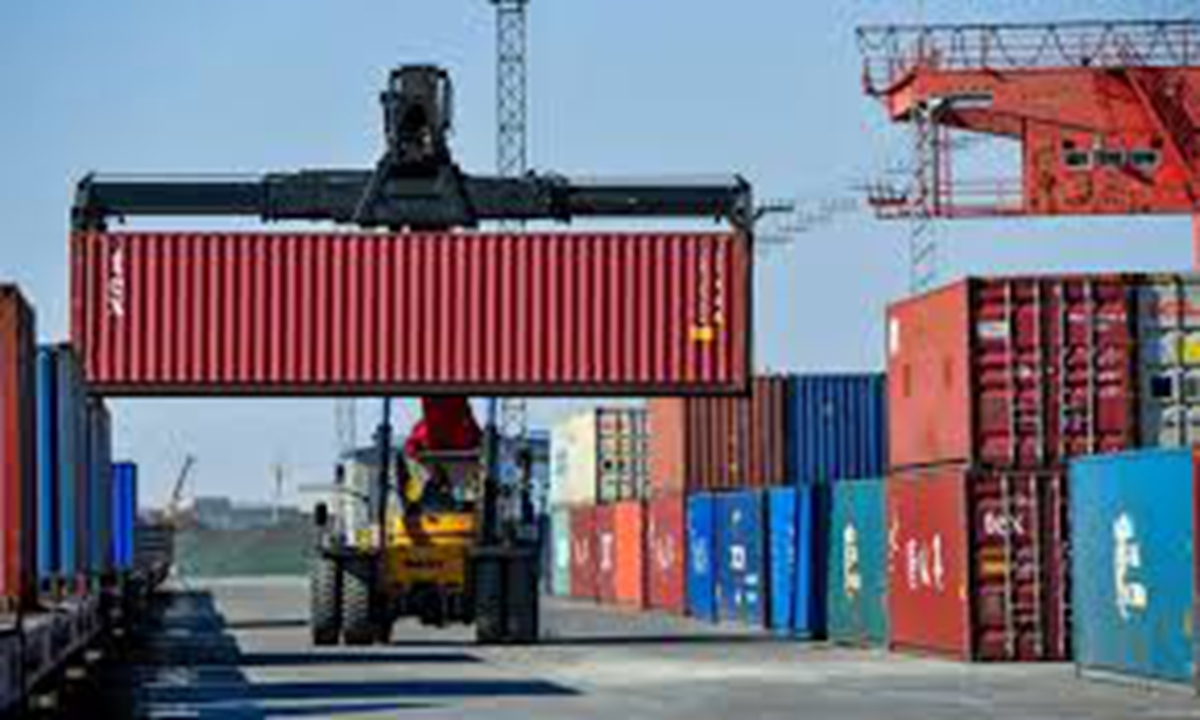China’s export control law provides legal guarantees for fair trade principle
By Song Wei Source: Global Times Published: 2020/10/21 21:25:20

File photo
China has passed the Export Control Law of the People's Republic of China on Saturday. The law, which will take effect on December 1, stated that if any country or region abuses export control measures to endanger China's national security and interests, China can take reciprocal measures based on actual conditions.Although the law was passed in the context of intensified China-US trade war, efforts on the formulation of legal rules in this field began as early as the 1990s. Therefore, the passage and implementation of the export control law should not be simply interpreted as a political weapon to counter the US' trade war. It reflects the Chinese government's determination and responsibility to uphold the rule of law and maintain trade fairness in the context of anti-globalization.
For starters, export control law strengthens protection on trade safety. After the Cold War, to fulfill the international responsibility of preventing proliferation, China has introduced six administrative rules and regulations on nuclear, biological, chemical and missiles. Due to the lack of unified legislation, it is difficult to coordinate the enforcement of export control practices.
With the accelerated pace of opening up and the steady progress of cooperation related to the Belt and Road Initiative, the risks and uncertainties faced by Chinese companies in the international market are also increasing. In order to prevent the risk of "manufacturing backflow" caused by the COVID-19 pandemic and strengthen the security protection of overseas assets, it is necessary to implement the overall national security concept from a higher level. To this end, the export control law clearly stipulates that export control work should adhere to the overall national security concept, maintain international peace, coordinate security and development, and improve export control management and services.
In addition, export control has become an important means of safeguarding national security and interests. Major countries and regions in the world, including the US and the EU, have formulated and introduced export control laws. China just improved its foreign trade legal system, thereby strengthening the protection of its own industrial and development interests.
Secondly, the export control law has demonstrated its support to trade equivalence. Fairness and reciprocity are the foundation and core of international trade. However, the impact of the pandemic and the rise of nationalism in developed countries have posed dangers to the existing multilateral system, which has aggravated the fragility of the global trading system. China's export control law has provided legal foundation for its own unreliable entity list and powerful support to trade reciprocity principles, which will prevent it from becoming a victim of bullying.
Thirdly, the export control law also promotes resistance against trade protectionism. Against the backdrop of the pandemic, protectionism has spread from developed countries to developing countries. Recently, incidents of boycotts and restrictions on foreign investment and foreign commodities in developing countries' markets have increased, their business environment has further deteriorated, and their development is facing even more arduous tests.
Faced with the development risks that spread across the globe, China has demonstrated its firm support for openness in the form of legislation. The export control law will efficiently prevent very few "counterfeit and inferior" products from being exported overseas, and ensure that high-quality "Made in China" products can bring tangible improvements to people in developing countries that have been hit by the pandemic.
The passage of the export control law is not only to safeguard China's own security and interests, it is also the Chinese government's firm proposition and stance on the principles of fairness and reciprocity in the current complex and fragile international trade environment, and it is an oath to preserve the global development pattern. It has a very positive implication and value.
The author is an associate research fellow at the Chinese Academy of International Trade and Economic Cooperation under the Ministry of Commerce. bizopinion@globaltimes.com.cn
RELATED ARTICLES:
Posted in: EXPERT ASSESSMENT